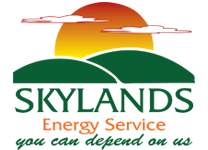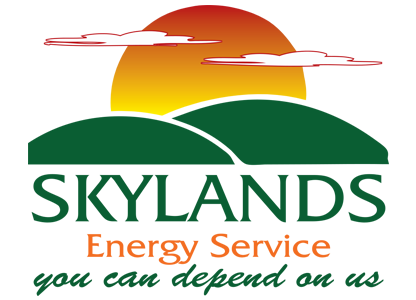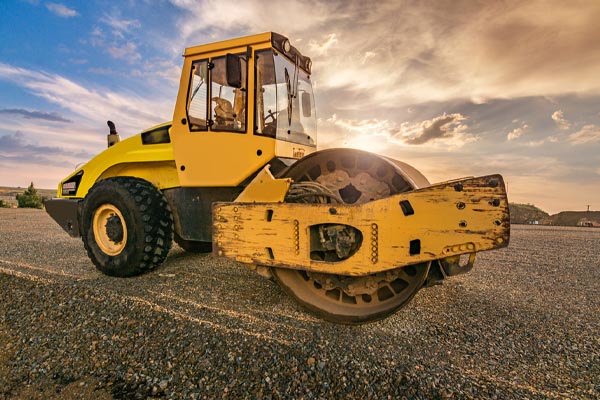
The versatility of diesel as a liquid fuel is evident in its extensive use, especially in its ability to ignite without the need for a spark, thanks to its excellent compression traits. Derived from petroleum and biomass, diesel’s quality and sustainability are often maintained through set standards. These standards categorize diesel into on-road and off-road types. Understanding these categories is crucial for appropriate use and adhering to regulations. In this article, Skylands Energy Service explores the nuances of on-road vs off-road diesel, emphasizing what sets them apart and what they share in common.
On-Road vs. Off-Road Diesel: Unraveling Their Distinctions
Table of Contents
Dive deeper into the contrasts between these two fuel types.
Understanding On-Road Diesel
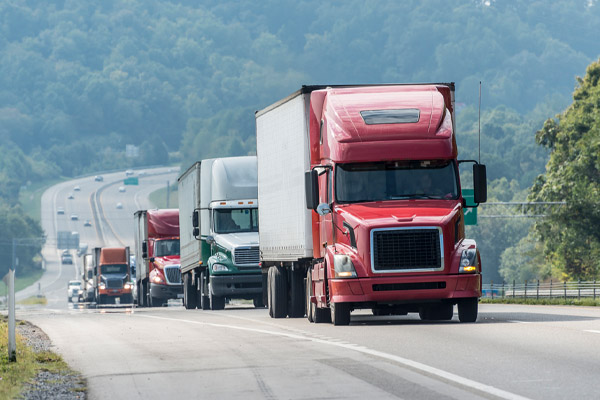
True to its name, on-road diesel is designated for vehicles navigating public roads, primarily serving as a transportation fuel. This fuel type, readily available at numerous gas stations, is often transparent. While some may dub it “green diesel,” it’s essential to note that the color isn’t a reference to any dye but emphasizes its renewable and environmentally conscious nature.
The appearance of on-road diesel can serve as a guide to its age and quality. Fresh, high-quality diesel will display a vibrant and clear look. However, older on-road diesel might seem dull and result in subpar performance, among other issues. It’s beneficial to prioritize suppliers known for consistently providing top-notch fuel quality.
Delving into Off-Road Diesel

Off-road diesel is specifically tailored for agricultural, industrial, and certain residential purposes. This fuel is the driving force behind farms, manufacturing plants, and construction sites, propelling stationary machinery and on-site vehicles to enhance their efficiency and output. While some residences might utilize off-road diesel as a heating solution during colder months, it’s essential to note the legal boundaries surrounding its use.
Federal and state regulations clarify who can use this fuel and how it’s taxed. A distinct feature of off-road diesel is its red hue, attributed to the dyes named Solvent Red 26 and 164. Even in minute quantities, these dyes are specifically designed to be detectable, ensuring that off-road diesel remains distinguishable from its on-road counterpart. This clarity helps users and suppliers alike adhere to established regulations.
Despite their distinct applications, on-road and off-road diesel have more in common than meets the eye. Chemically speaking, both fuel types are virtually identical. This means any diesel engine can run on either of these fuels with comparable efficiency. If farms or industries ever find themselves short of off-road diesel, they can temporarily use the on-road variant. However, most promptly revert to the off-road type, primarily for cost-saving reasons.
Conversely, while vehicles can theoretically operate using off-road diesel, this practice is generally discouraged. Regulatory constraints come into play, and it’s essential for motorists to remain compliant. The presence of the red dye in off-road diesel is a clear marker, and those found using it in prohibited scenarios may face penalties. Always prioritize adhering to established regulations to avoid any legal complications.
Distinguishing Off-Road from On-Road Diesel
Tax Implications
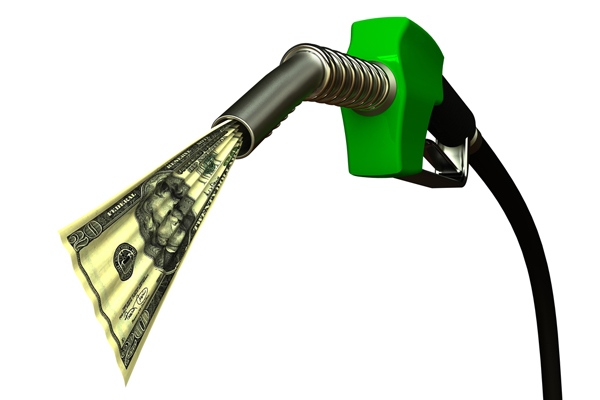
One of the primary distinctions between on-road and off-road diesel lies in their taxation. On-road diesel typically incurs higher taxes, a strategy set in place by governments to fund the upkeep and development of roads and infrastructure. Given that vehicles using on-road diesel contribute to road degradation, it makes sense that they also play a role in its maintenance. Through these tax charges, drivers contribute to public roadways’ preservation and sustainability.
While the federal tax on diesel remains consistent throughout the US, individual states have the autonomy to introduce additional levies. These can be based on the volume of fuel procured or the total expenditure on the fuel. In contrast, off-road diesel enjoys a tax exemption, mainly due to its non-road related applications. This is a crucial consideration for users when budgeting and planning their diesel consumption.
Color as an Identifier
A distinct method is required for differentiation, with both on-road and off-road diesel sharing the same chemical composition. This is where color plays a pivotal role. A mere glance can allow officials to determine the type of fuel within a tank.
Should there be suspicions of any discrepancies, authorities have the right to halt motorists and inspect their fuel tanks. This could involve extracting a tiny sample or examining the fuel filter for the fuel’s hue. For vehicles operating on public roads, the expected color is clear, characteristic of on-road diesel. Utilizing red, off-road diesel in inappropriate scenarios can lead to hefty penalties, sometimes reaching up to $10,000. Adherence to regulations is crucial to steer clear of such complications.
Cost Implications
The allure of using red diesel in standard vehicles often stems from its cost advantage. The added taxes on on-road diesel invariably render it pricier than its off-road counterpart, with the price gap sometimes being as much as 25 cents per gallon. The potential savings from opting for cheaper fuel might seem enticing for frequent travelers covering extensive distances. Nevertheless, the looming risk of incurring substantial fines should deter individuals from taking this route. In the grand scheme, any savings might be overshadowed by the potential financial penalties.
Scope of Use
By regulation, the applications of off-road diesel are specified. In construction, it’s the lifeblood of heavy-duty machinery, ranging from cranes, loaders, rollers, and compactors to earth movers, backhoes, excavators, trenchers, forklifts, and scrapers. Shifting the focus to agriculture, this fuel variant propels tractors, harvesters, irrigation systems, and assorted farm equipment. Such machinery augments productivity and diminishes reliance on manual labor, offering farmers an avenue to optimize revenue. Some jurisdictions even permit vehicles to operate on off-road diesel, provided they are confined to private premises. In contrast, on-road diesel is preferred for vehicles like cars, SUVs, and light trucks that consistently ply public roads.
Fuel Distribution
On-road diesel is tailored for ease of access for motorists. A quick pit stop at any of the myriad fuel stations scattered along the highways allows drivers to refill their tanks effortlessly. While the price point may be higher, the sheer convenience and ubiquity of these stations provide a compelling argument in its favor. Additionally, long-distance truckers holding a valid tax certificate can also avail of tax-exempt green diesel at designated pumps in certain states.
Contrastingly, off-road diesel operates on a different distribution model. Predominantly, it’s procured in bulk quantities by specialized fuel distributors, like Skylands Energy Service. Farms and businesses requiring this fuel typically schedule deliveries, which are transported to their premises via trucks. It’s common for these establishments to maintain an on-site storage tank, streamlining the refueling process. While a handful of remote gas stations might stock off-road diesel, they’re far and few between. Establishing a consistent relationship with a reliable fuel distributor ensures an uninterrupted supply.
In Summary
The versatility and cost-effectiveness of diesel have made it a sought-after fuel for myriad applications. Governments have bifurcated diesel into two distinct categories to streamline its use and taxation. On-road diesel, designed for vehicles plying on public roads, is readily accessible at fuel stations, albeit at a premium due to the associated taxes. Conversely, the machinery in agriculture and construction domains benefit from the more economical off-road diesel. While both fuel types share identical chemical compositions, the red dye in off-road diesel serves as a clear distinction. This color differentiation aids in regulatory oversight and helps nab unauthorized usage. For those needing a reliable supply of on- and off-road diesel, trusted local providers like Skylands Energy Service stand ready to facilitate timely deliveries.
Call Skylands Energy Service For Your Diesel Fuel Requirements
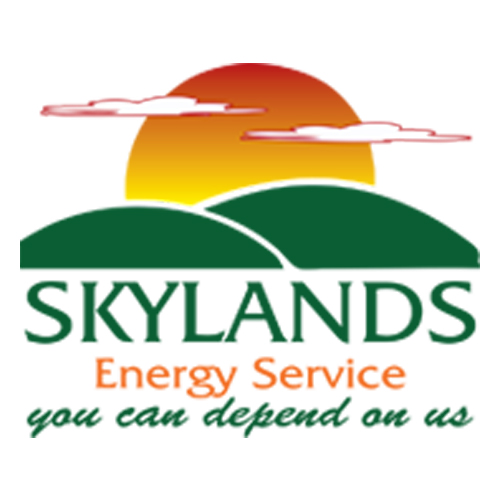
Skylands Energy Service is a reliable provider fuel delivery in Central New Jersey. We pride ourselves on delivering cost-effective fuel solutions with the most competitive prices in the region. Our commitment is to deliver outstanding products and services to all our clients. With Skylands Energy Service as your chosen fuel supplier, you’ll enjoy accurate and timely deliveries at the best prices. We also provide a range of delivery plans and flexible financing options to tailor our services to your specific needs. Don’t hesitate to call us today for more information.
Our team at Skylands Energy Service consists of certified and expertly trained HVAC technicians, ready to address all your heating and cooling requirements. We ensure every technician has the expertise, skills, and knowledge necessary to offer exceptional HVAC services. Whether you need new installations, urgent repairs, routine maintenance, or any other HVAC solutions, we are here to help at affordable prices and with a quality guarantee.
To learn more about the various products and services we offer, please give us a call. We are happy to provide free, in-home evaluations. Click the link to check if your location is within our service area.
Contact us now at (908) 707-1776 to find out more! To view our service area, click here.
Related Articles:
